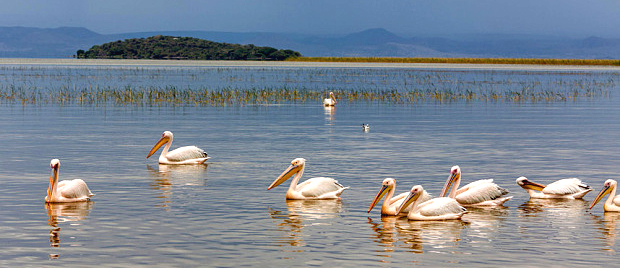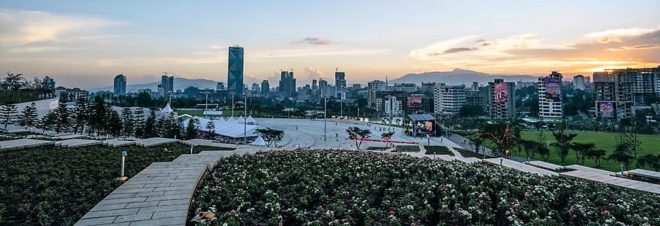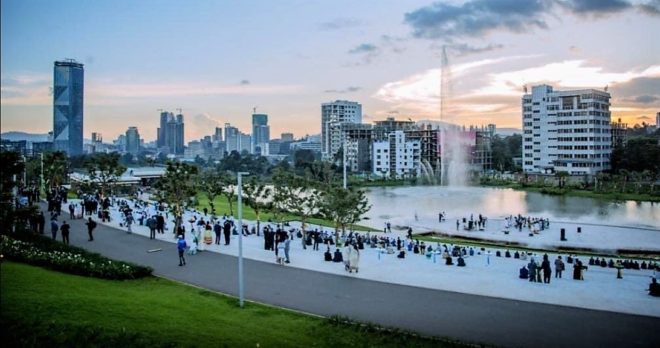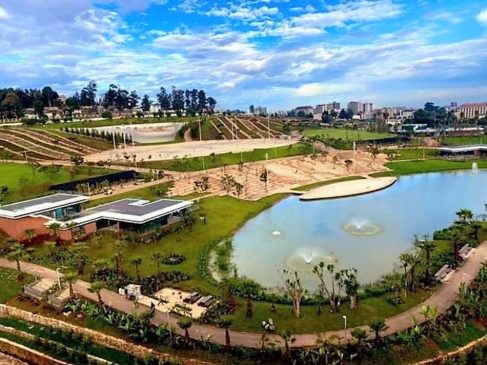Ethiopia Targets to Triple Number of Visitors
By Eden Sahle
Although Ethiopia is among the top six countries with the most UNESCO heritage sites in Africa, it has not completely utilized the potential of its tourism industry. To alter this fact, the Ministry of Culture and Tourism (MoCT) targets to triple the annual number of visitors to more than 2.5 million in the next four years.
So far, the number of visitors has been far from the MoCT targets. In 2010, only 468,000 people visited the country, in 2013 the figure improved to 681,000 and to 750,000 in 2014. In spite of being below MoCT target, the number of visitors has been increasing by 10 percent each year and generating $2.9 billion. The average tourist staying period also rose up to 16 days.
The ministry is aspiring to earn $6 billion each year as proposed in its second Growth and Transformation ambitious Plan (GTP). The contribution of the tourism sector to the GTP is also planned to increase to 5% from its current 1.2%.
Currently, the tourism industry contributes a little over 4% to the GDP, this is less than the target. The industry’s contribution to GDP was 4.2% in 2013 and it rose to 4.5% in 2014. However the figure is predicted to rise significantly by 2024 creating a direct improved economic impact.
“Continuing to develop infrastructure that meets the expectations of guests is key to increase revenue from the sector and to support the general economy.” said Estelle Verdier, Managing Director of Jovago East and Southern Africa.
Infrastructure development is another area which received great attention in the bid to increase revenue from the tourism sector. Ethiopia has eight new global brand hotels in the pipeline and is listed among the top markets with several deals in process as new chain hotels venture into the untapped hotel sector development.
Hilton signed a deal for upscale Hilton Hawassa Resort & Spa which is expected to open in 2020. Marriott International in partnership with Sunshine Business, opened Africa’s first Marriott Executive Apartments in Ethiopia’s capital.
“Hotel ownership provides an exciting investment opportunity where rewards can be in excess of the risks involved. Investment is moving past the traditional markets of Egypt, South Africa and Morocco, where rewards are not as high, because of the larger existing supply,” David Harper, Head of Property Services at Hotel Partners Africa said.
On the other hand, Ethiopia’s tourism has created 783,638 jobs over the last four years contributing 3.8% to the total employment as reported by the 2014 World Travel and Tourism Council.
This includes employment by hotels, travel agents, airlines and other passenger transportation services. It also comprises of the activities of the restaurants and other leisure industries. The industry is estimated to generate over one million employment during the second GTP. The income the country’s tourism sector receives is growing by 20% per annum, as tourists are spending more.
To capture the demand of new and regular travellers, the country implemented a tourism strategy and erected major infrastructures with the aim of being one of the top ten destinations in Africa. Recognizing infrastructure as a catalyst for tourism and lodging development, Ethiopia continues to capture the attention of the global hotel developers.
In recent years, Addis Ababa emerged as a key target market for international hotel investors. Operators have affirmed the country as a hotspot for development thus allowing the country to reap the full benefit of the sector.
Author: Eden Sahle is currently serving as a head of public relations at Jovago Ethiopia.




